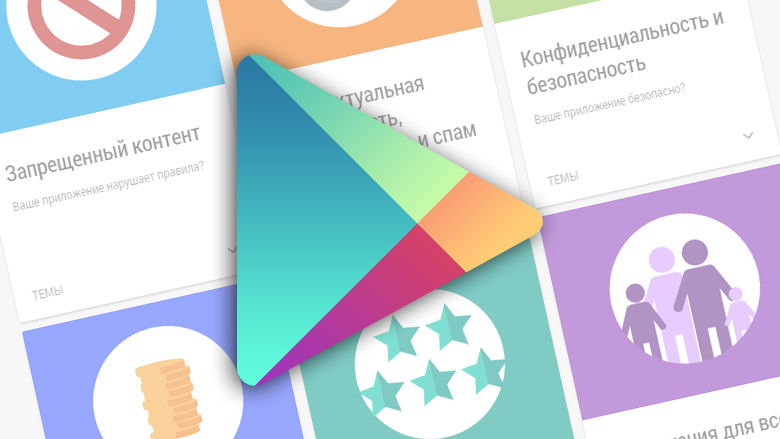The other day, the Android Developers Blog published a list of points that you need to remember so that the application is not removed from the Google Play platform. We present a brief version of the material about these very moments.

We should immediately note that there are many obvious points in the list, but it seems to us that it is easy to forget about some of them.
The first and most important rule is: before you start publishing an application in the store, take a look at the Policy Center, where it is explained in detail and clearly what the developer should not do, and also tells about the most popular violations (for example, about “trademark infringement”).
Further. When you make out a description for the application, avoid unnecessary keywords and user ratings, and also remember that the description should be suitable for users of any age (even if the game is aimed at an adult audience, it’s still not worth writing about the fact that there are “sex toys” in the game, for example).
Use in the listings (this is all that is on the application page in the store) to promote only the content that you have rights to. This applies to pictures, videos, and any assets in general. By the way, the most popular mistake is to use images of popular mobile devices in commercials and screenshots (for example, a gadget with an apple or with the logo of some Korean giant). As with the test design, listings should be acceptable to users of any age.
A little more about age. When posting an application, the developer must fill out a questionnaire about the age rating of the application. It is worth treating this very responsibly, because if the rating in fact does not coincide with the content, then the game can be taken and cut from Google Play.
If the application collects data about users, then this should be indicated in the listing of the application in the store and in the application itself. That is, the user needs to know what data and why you are collecting.
Advertising in the application must also comply with certain rules, because when approving and verifying content, the Google review team looks at what kind of advertising is running in the application and how it behaves there. Ads, like the listings themselves, should not contain content designed for an adult audience. Google does not allow ads that are misleading (including those that look like a system notification or occur when the user exits the application). For “bad” ads, they can also be removed from the store.
In order for the application not to be deleted, there should be no mention of sex, cruelty or drugs in its listings. But if the application contains content generated by users themselves (including chat threads), then in this case there should be a warning about this.
The full list of prohibitions can be read here.
